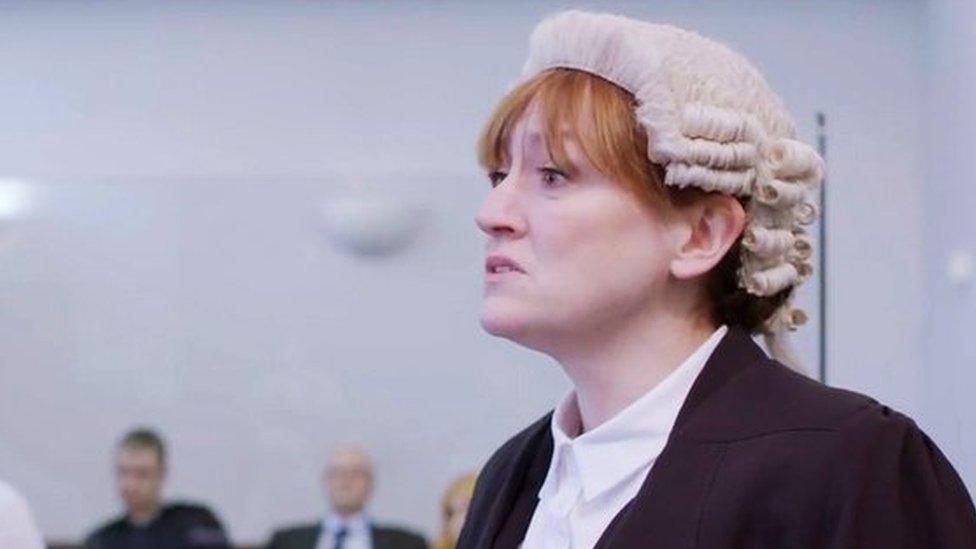Why are Scottish lawyers threatening to boycott rape trials?
- Published
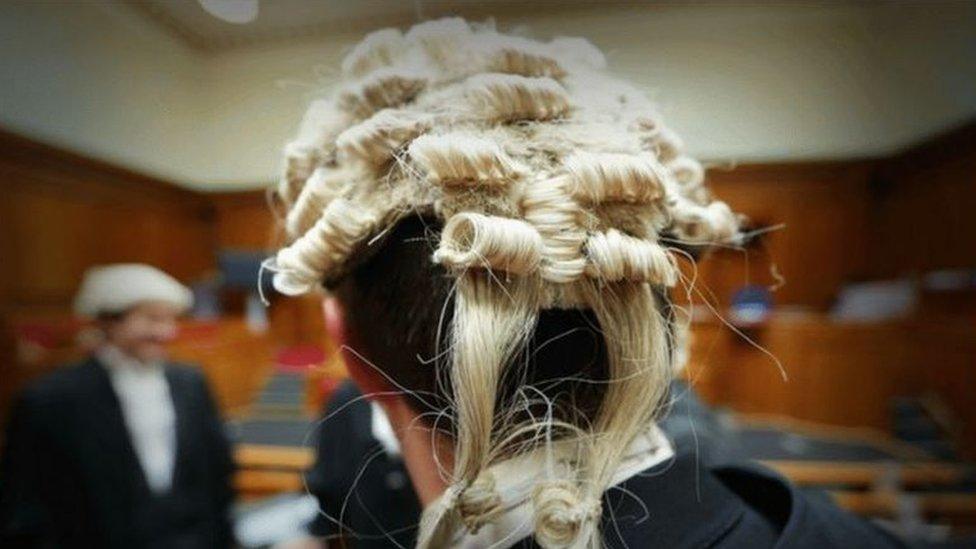
Some law firms and local bar associations have already said they will not take part in the pilot
Plans to hold trials for serious sexual offences without a jury in Scottish courts are facing a growing backlash from lawyers.
The Scottish government wants a single judge to decide whether people are guilty of rape and attempted rape in a pilot scheme aimed at increasing conviction rates.
Defence lawyers are concerned that the move threatens the right to a fair trial, and have said they will boycott the scheme.
And a former judge has described the proposal as "repugnant" and warned that it could breach human rights law.
What is the problem?
All trials for rape and attempted rape in Scotland are currently held before a jury of 15 ordinary members of the public, who listen to the evidence and decide whether the accused is innocent or guilty.
But only about half of these trials result in a conviction, external, compared to about 90% for all crimes.
The Scottish government believes this is partly because jurors can be influenced by "rape myths" - outdated attitudes that prejudice how they view the case and whether or not they believe the alleged victim is telling the truth about not having consented.
These myths can include expectations that a genuine victim would try to fight off or escape an attacker, that they would immediately report the crime to the police or that they would become emotional when giving evidence in court.
What does the government want to do about it?
The issue was examined in detail by senior judge Lady Dorrian, who recommended that a time-limited pilot project be held to examine whether holding juryless trials would be more effective.
It would see anyone accused of rape or attempted rape stand trial before a single judge or sheriff, who would decide whether or not they are guilty.
The idea is that judges would be much less likely to be influenced by rape myths than members of the public.
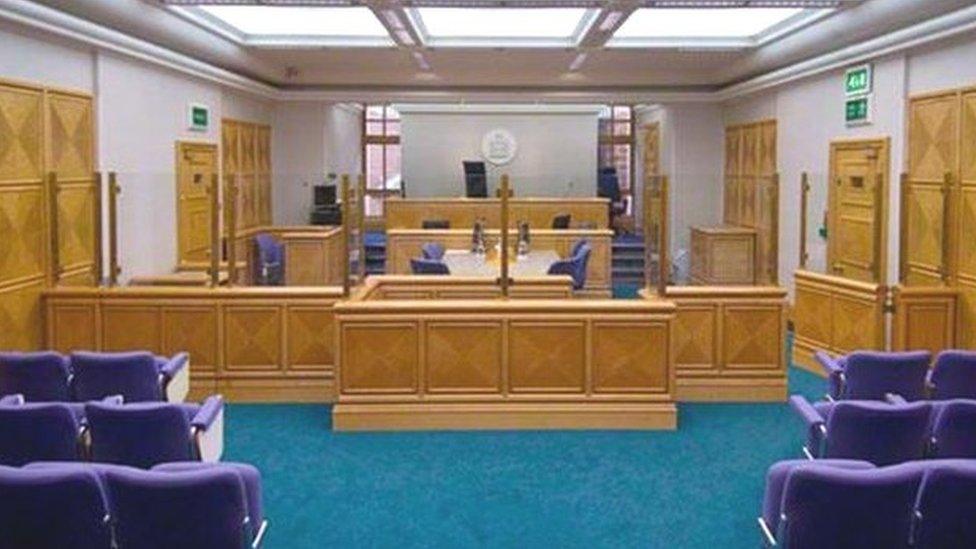
The review suggests a number of ways the judicial system could be improved
The government included the proposal in its Victims, Witnesses and Justice Reform (Scotland) Bill, which was published in April.
If it is passed by the Scottish Parliament, the new legislation would also see a new specialist Sexual Offences Court set up as part of attempts to make the justice system less traumatic for victims.
It proposes scrapping the controversial not proven verdict, which is seen as being another barrier to increasing the number of people convicted of sexual offences, and would reduce the number of people in a jury from 15 to 12.
Justice Secretary Angela Constance said it was "very legitimate" to pilot juryless trials given the low conviction rates for rape and attempted rape and "the prevalence of pre-conceptions" in such trials.
What has the reaction been?
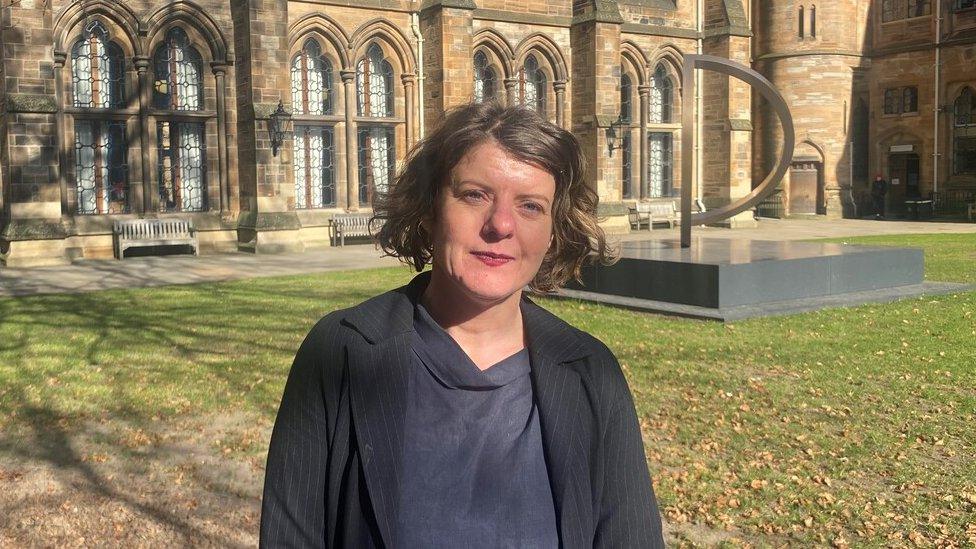
Sandy Brindley said people accused of rape would still have a fair trial if there is no jury
The proposal for juryless trials was broadly welcomed by victim support groups, who believe too many women are being let down by the justice system and too many rapists are walking free.
Sandy Brindley, the chief executive of Rape Crisis Scotland, said there was "significant evidence" that myths about sexual violence influenced juries.
She added: "What we all want is a system where we can be confident that the evidence being heard in rape trials is being assessed fairly and objectively, and isn't influenced by false assumptions or attitudes towards women.
"Everyone has the right to a fair trial but that does not automatically mean a jury trial. A single-judge trial is still a fair trial".
So why are lawyers angry?
Some legal professionals have accused the government of threatening the fundamental principle that an accused person is innocent until their guilt is proven beyond reasonable doubt.
Concerns have been raised that the political focus on increasing conviction rates could put pressure on judges to find people guilty even if the case against them has not been fully proven.
Murray Etherington, president of the Law Society of Scotland, said that "undermining the foundations of the Scottish justice system to increase conviction rates is a dangerous approach which will create a serious risk of injustice".
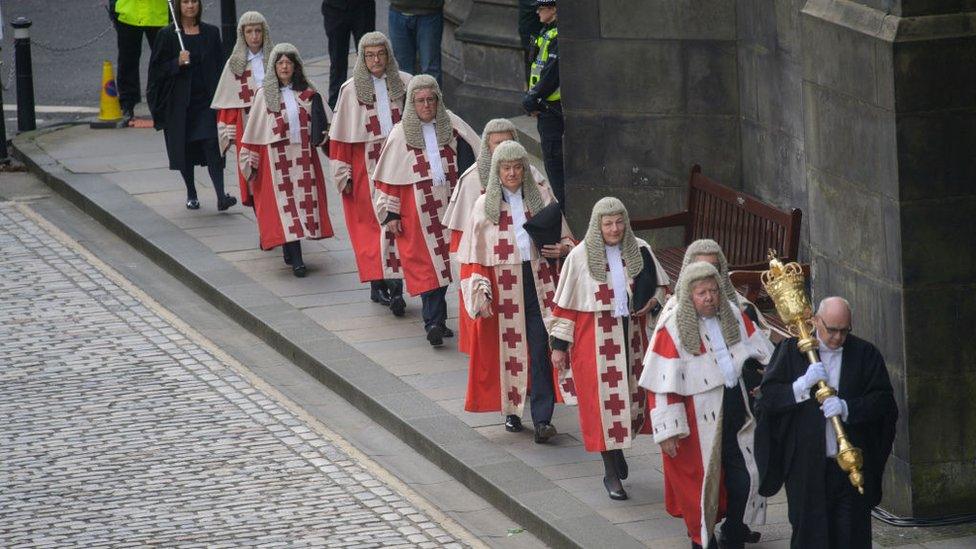
There have been concerns about putting pressure on judges
And prominent defence lawyer Thomas Ross KC has warned of a possible "witch hunt" against judges if they do not convict more people of sexual offences.
The Scottish Solicitors Bar Association (SSBA), which represents criminal defence lawyers, has said it is likely to ballot its members on whether they should take part in any pilot, with a number of legal firms and many local bar associations - including in Glasgow, Edinburgh and Aberdeen - already announcing that they want nothing to do with it.
The SSBA described judge-only trials as an "alarming development that we see absolutely no justification for" and said that "no other civilised country dispenses with juries in such cases" and has predicted that its members will be unanimous in boycotting the pilot.
It added: "The suggestion that juries are routinely misguided in their verdicts and in some way conviction rates need to be corrected for such offences is frankly an affront to justice and should be opposed."
Meanwhile, former judge Lord Uist - who retired two years ago - has described the proposals as "repugnant" and a "serious attack upon the independence of the judiciary" that could breach the right to a fair trial that is enshrined in the European Convention on Human Rights.
Writing in Scottish Legal News, external, he also accused politicians of "treating the courts as forensic laboratories in which to experiment with their policies".
The proposal is likely to be highly controversial at Holyrood, with some opposition politicians already drawing parallels with the Hate Crime Bill - which also faced widespread opposition from the legal profession and has still not come into force despite being passed more than two years ago.
- Published26 April 2023
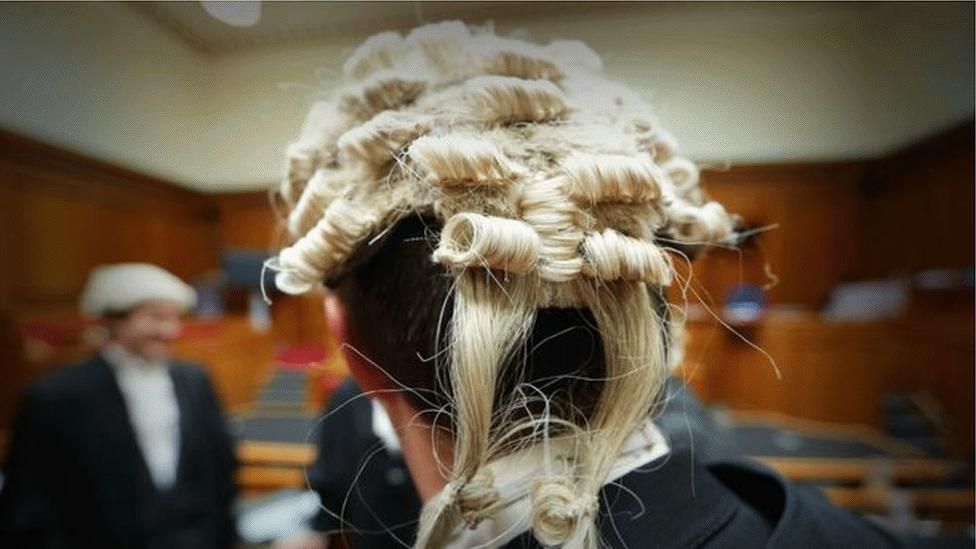
- Published26 April 2023
